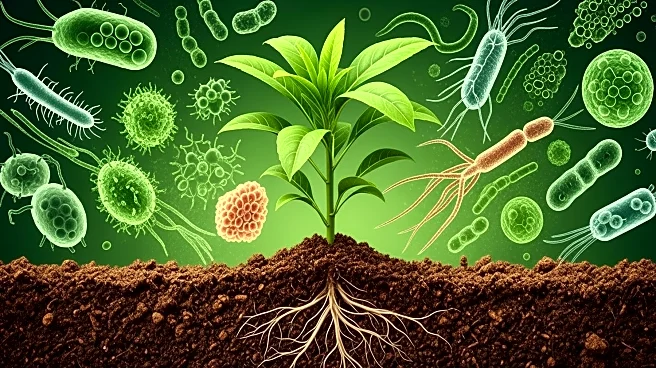What's Happening?
Brazilian soil scientist Mariangela Hungria was honored with the 2025 World Food Prize for her pioneering work in biological nitrogen fixation. The award ceremony, held in Iowa, was attended by notable
figures including Iowa Governor Kim Reynolds and Vice President of Ghana, Jane Naana Opoku-Agyemang. Hungria's research focuses on using symbiotic soil microorganisms as alternatives to synthetic fertilizers, which has significantly increased crop productivity across millions of hectares. Her work has helped farmers save billions and reduce agriculture's environmental impact. Hungria expressed pride in contributing to sustainable food production and emphasized the importance of biological inputs in agriculture.
Why It's Important?
Hungria's achievements in soil microbiology have profound implications for sustainable agriculture. By reducing reliance on chemical fertilizers, her work supports environmental conservation and climate change mitigation. The recognition of her efforts highlights the growing importance of sustainable farming practices in global food security. Her innovations offer a model for other regions to enhance agricultural productivity while minimizing ecological footprints. This award underscores the critical role of scientific research in addressing global challenges such as food security and environmental sustainability.
What's Next?
The World Food Prize will celebrate its 40th anniversary in 2026, continuing to honor individuals who advance global food security. Hungria's work sets a precedent for future laureates to focus on sustainable and innovative agricultural practices. Her recognition may inspire further research and investment in biological solutions for agriculture, potentially leading to widespread adoption of her methods. As global food demands increase, sustainable practices like those developed by Hungria will be crucial in meeting these needs without compromising environmental health.










